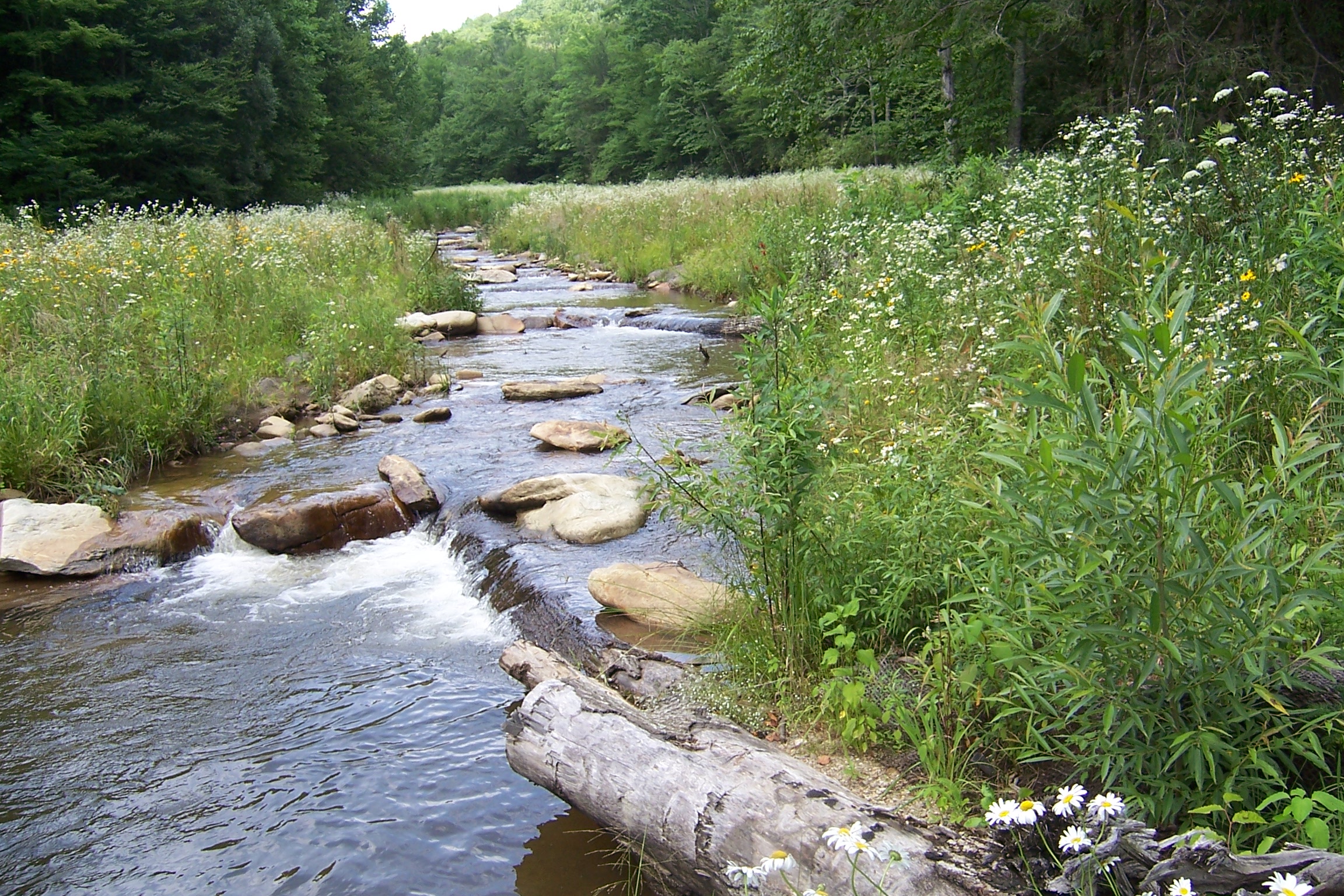In the press.....
Haywood Waterways Recognizes Water Champions
Haywood Waterways Association honored five “Water Champions” for their work to protect and improve Haywood County’s rivers, streams, and reservoirs in 2017. The awards were given at the organization’s annual Christmas holiday dinner.
Eric Romaniszyn, Haywood Waterways’ Executive Director, said, “It’s a challenge to determine who to recognize each year. There are many worthy individuals and organizations. This year we recognized four individuals and one project.”
The Pigeon River Award is given to the individual or organization that has made a significant contribution to protecting Haywood County’s land and water resources. However, this year HWA broke tradition and gave the award to a project - the Dotson Branch Stream Corridor Restoration and Water Quality Improvement Project, a multi-partner, large-scale effort that is having tremendous impact on the county’s waterways. The project is locally managed by the US Department of Agriculture - Natural Resources Conservation Service and Haywood County Soil & Water Conservation District.
From the mouth of the stream at the Pigeon River to the top of the watershed, Dotson Branch flows through primarily agricultural land. Water quality was extremely degraded by sediment and nutrient loading from livestock, and there was very little stream side vegetation to help filter pollutants. The solutions included restoring 10,000 linear feet of stream channel to proper hydraulic function, stabilizing 18,600 linear feet of eroding stream bank, planting 10.7 acres of stream side trees and shrubs, and fencing 3.5 miles of stream bank to exclude livestock access.
John Ottinger, Supervisory Soil Conservationist with NRCS, said, “Thanks to the farmers who were willing to participate and improve water quality. To date, over $1 million has been secured and is being used for solutions that are improving water quality and protecting valuable farmland.” Other partners include the Southwestern NC Resources Conservation and Development, Resource Institute, and NC Division of Water Resources.
The Big Creek Award for Partner of the Year was presented to Lynn Sprague from the Southwestern NC Resource Conservation & Development Council. Lynn was recognized as one of Haywood Waterways primary partners, helping to develop projects and manage grants. Most recently these projects include working to remove a dam and creating a Watershed Action Plan for Beaverdam Creek; starting the Fines Creek Watershed Restoration Project to remove it from the state list of impaired waterways; implementing stormwater collection and treatment practices in Maggie Valley to help protect Jonathans Creek; and starting stream restoration projects at East Street Park and Chestnut Park in Waynesville.
He’s also a partner on the Regional Erosion and Sediment Control Initiative working to implement mountain-specific, cost-effective and on-going sediment and erosion control training for dirt movers called Mountain H20Pro, and serves on the Haywood Greenways Advisory Council helping to promote greenway development. Lynn is currently working with Haywood Waterways to develop a program to help homeowner’s associations control stormwater and stabilize roads to reduce erosion.
Volunteers are an essential part of the Haywood Waterways community. They help promote the organizations work, collect water quality information, and help protect waterways through such activities as planting trees, picking up trash and stenciling storm drains. The Volunteer of the Year Award was renamed this year in memory of the late Richard T. Alexander, long-time member of Haywood Waterways and active volunteer throughout Haywood County.
The Richard T. Alexander Award for Volunteer of the Year was given to three individuals, Bob Kimzey and the husband and wife team of Les and Julie Taylor.
Bob was recognized for his service collecting water samples as part the Volunteer Water Information Network. He was responsible for the Plott and Allens creeks sites and faithfully sampled them once a month between 2008 and 2017 before retiring this year. The VWIN Program collects water chemistry information from 24 sites throughout Haywood County. Haywood Waterways uses the information to justify projects and leverage financial assistance.
The second Volunteer of the Year winner was the husband and wife team of Julie and Les Taylor. They are new members of Haywood Waterways and are already having a big impact. They collect water samples for the VWIN program and have participated in multiple stream clean-ups. They also frequently help with other opportunities and even recruit new members to join the organization.
Haywood Waterways also recognized Andrew Bowen for his service on the Board of Director from 2016 to 2017. Andrew was the Planning Director for Maggie Valley during that time. A $50 donation in his honor was given to the Pink Francis Scholarship Fund at Haywood Community College.
Financial support for the membership dinner and awards was provided by Derric and Donna Brown, Pigeon River Fund of the Community Foundation of Western NC, Town of Clyde, and Town of Waynesville.
from Haywood Waters Association Facebook Page








